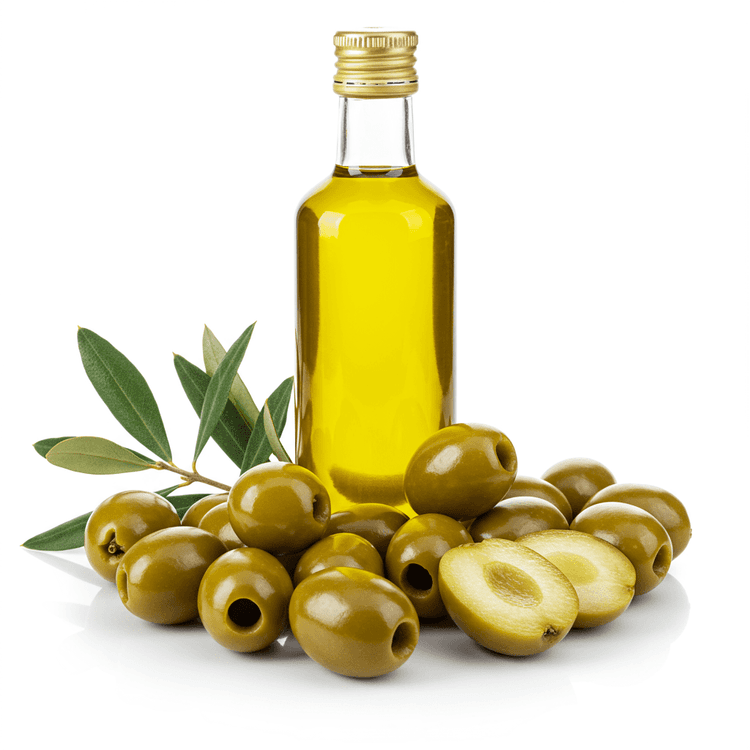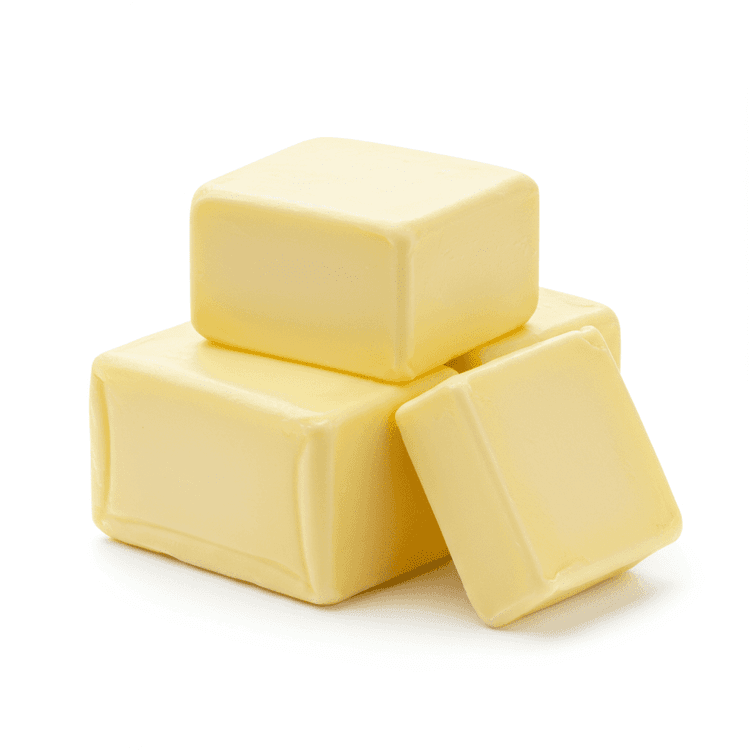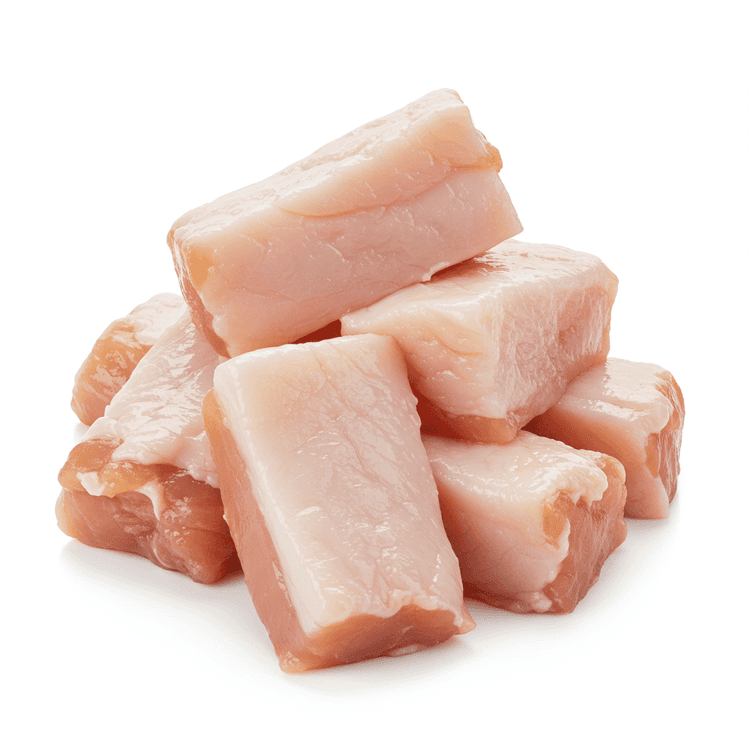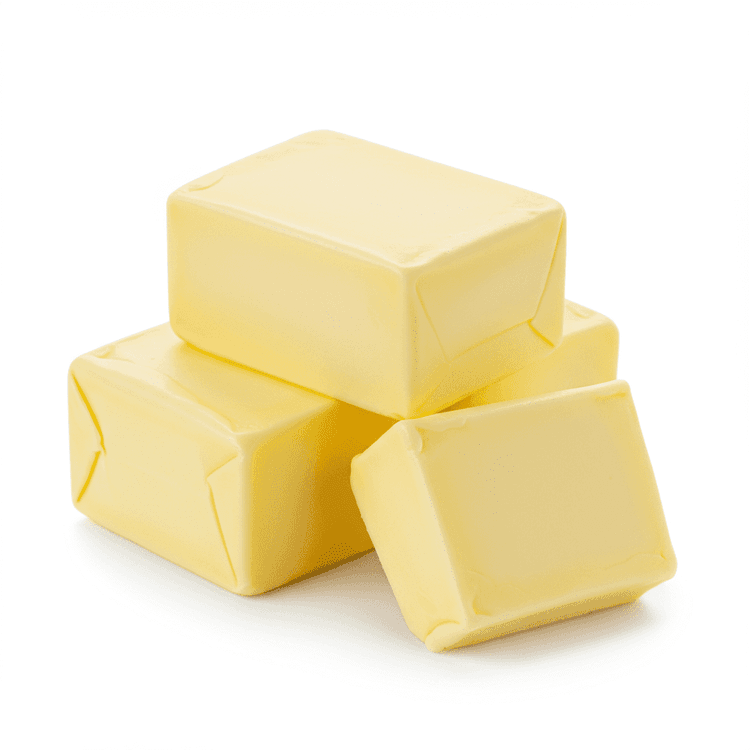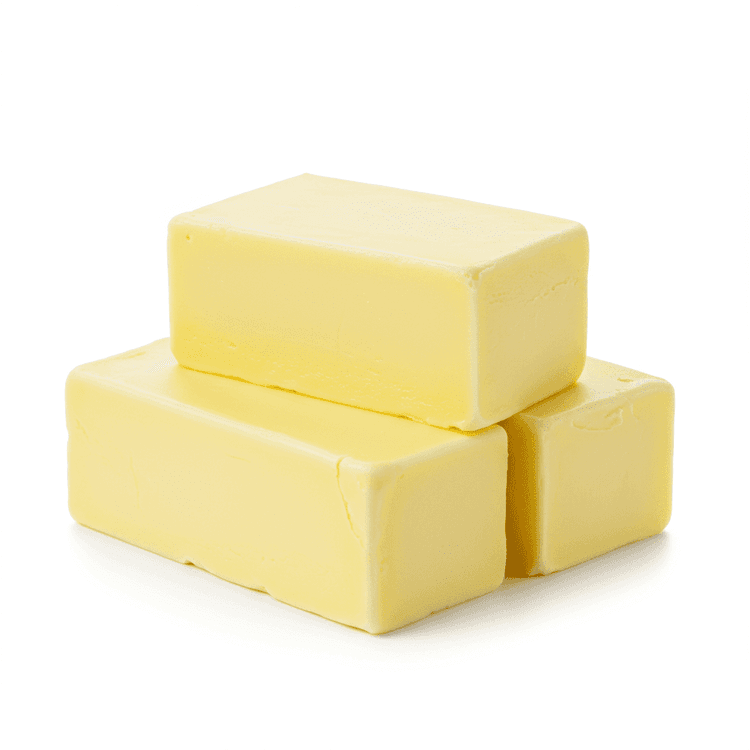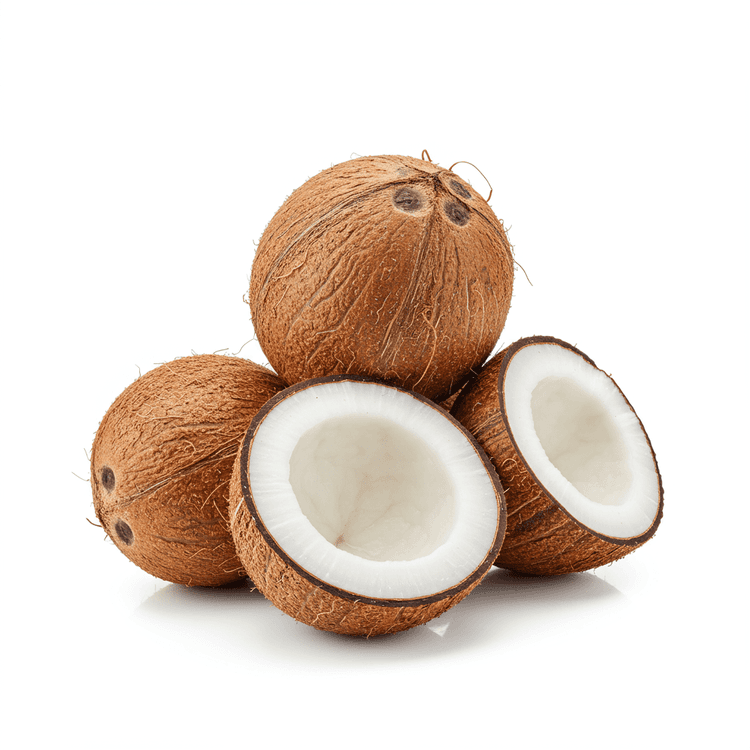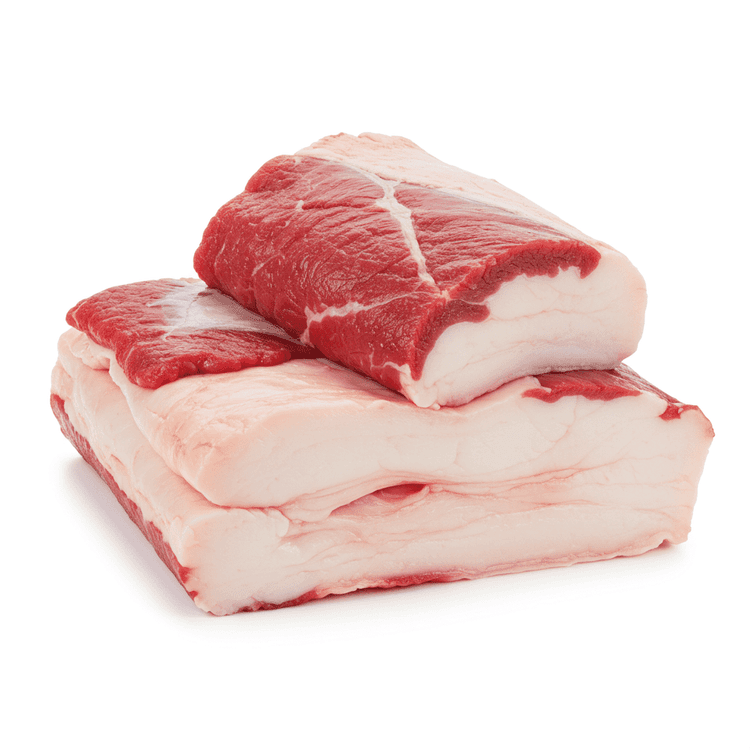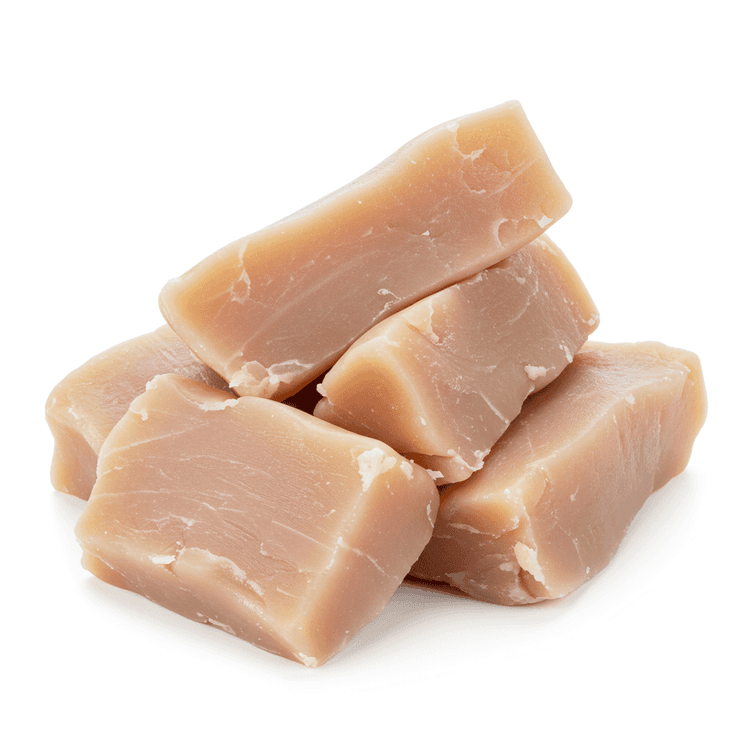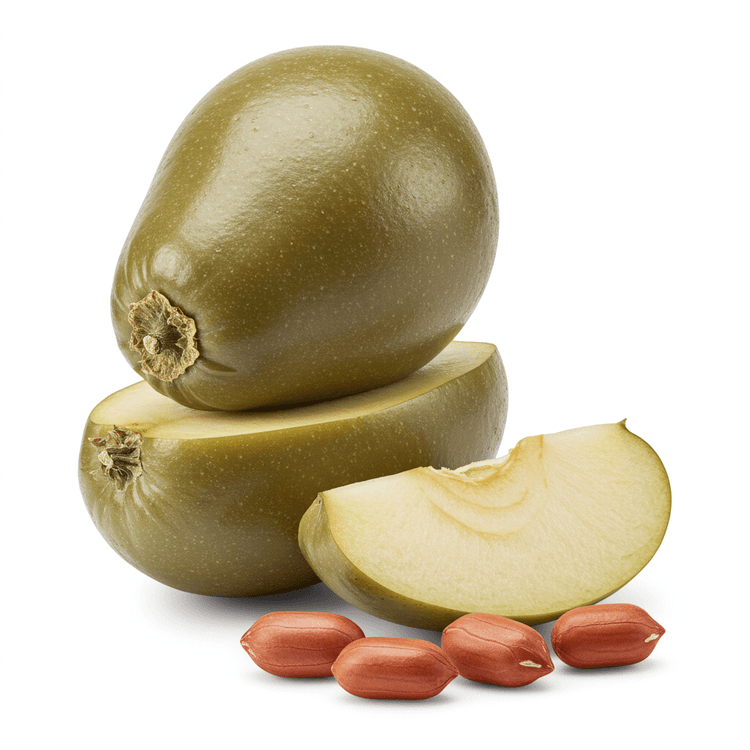
Vegetable Shortening
Vegetable shortening is a processed fat, typically made from soybean or cottonseed oil, that is solid at room temperature. Its neutral flavor makes it ideal for baking, as it doesn't impart any unwanted taste to the final product. The smooth, waxy texture of vegetable shortening contributes to incredibly tender baked goods and flaky pie crusts. It appears as a solid, white, or off-white block or tub of fat.
Common Uses
- Vegetable shortening is frequently used to create exceptionally flaky pie crusts. The solid fat inhibits gluten development, resulting in a tender, layered texture. - It is a popular choice for frosting and icings due to its ability to create a smooth, stable, and pipeable consistency. Shortening holds its shape well and resists melting at room temperature. - Vegetable shortening is often employed in baking cookies and cakes where a tender crumb is desired. It inhibits gluten formation and provides a moist, soft texture. - It is used as a cooking fat for deep frying, offering a high smoke point and neutral flavor which prevents the oil from overpowering the dish. - Vegetable shortening can be used to grease baking pans, preventing baked goods from sticking. Its solid form makes it easy to apply evenly to the pan surface. - It is an ingredient in some vegan or vegetarian baked goods as a substitute for butter or lard, providing similar textural qualities without animal products.
Nutrition (per serving)
Nutrition (per serving)
Calories
884.0kcal (44.2%)
Protein
0.0g
Carbs
0.0g
Sugars
0.0g
Healthy Fat
71.3g
Unhealthy Fat
26.0g
% Daily Value based on a 2000 calorie diet
Nutrition (per serving)
Calories
884.0kcal (44.2%)
Protein
0.0g
Carbs
0.0g
Sugars
0.0g
Healthy Fat
71.3g
Unhealthy Fat
26.0g
% Daily Value based on a 2000 calorie diet
Health Benefits
- May be lower in saturated fat compared to some animal fats.
- Can be part of a balanced diet when consumed in moderation.
- Suitable for some vegetarian and vegan diets (check the specific product for animal-derived ingredients).
- Provides a source of dietary fat for energy.
Substitutes
Chefadora AI is here.
Experience smarter, stress-free cooking.
Storage Tips
Vegetable shortening should be stored in a cool, dark, and dry place, ideally at room temperature. Ensure the container is tightly sealed to prevent oxidation and absorption of odors. Avoid storing it near heat sources or in direct sunlight, which can cause it to melt or become rancid. Properly stored, it can last for several months past the "best by" date.
Marnirni-apinthi Building, Lot Fourteen,
North Terrace, Adelaide, South Australia, 5000
Australia

